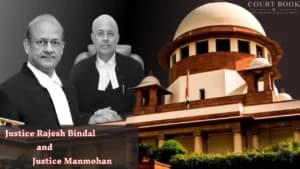The Allahabad High Court, in a strongly worded order, has come down heavily on the growing issue of teacher absenteeism in government primary schools of Uttar Pradesh. Justice Praveen Kumar Giri, while hearing Indra Devi vs. State of U.P. & Others, observed that such negligence violates the fundamental right to education guaranteed to every child under the Constitution.
The case arose from the suspension of a head teacher, Indra Devi, who was found absent without permission during an inspection at a composite school in Banda district.
Background
The petitioner, Indra Devi, had approached the High Court seeking to quash the suspension order issued on 30 August 2025 by the District Basic Education Officer, Banda. She also requested reinstatement and regular payment of her salary.
During inspection by district authorities, the school was found empty around 1:30 PM no staff members or students were present. The inspection note recorded that even attendance registers lacked proper signatures, raising concerns about regular functioning.
Justice Giri remarked that the Court had been flooded with matters pertaining to non-attendance of teachers in primary educational institutions.
Court's Observations
In a reflective tone, the judge linked the problem to the erosion of values in the teaching profession.
"A teacher, by his or her conduct, shapes not only the student but also the moral fabric of society," he said, invoking ancient Indian texts to remind educators of their sacred duty.
Quoting from scripture, the Court observed,
"Guru is Brahma, Guru is Vishnu, Guru is Maheshwara… Guru is the Supreme Being itself."
Justice Giri said this respect is earned only through discipline and devotion to teaching, not by negligence.
The bench further noted that teacher absenteeism directly undermines the Right of Children to Free and Compulsory Education Act, 2009, and widens the learning gap among poor village children who cannot afford private tutors. The absence of teachers, it said, burdens those who do attend and ultimately drives students away from public schools.
"The absence of teachers from school has a negative impact on students learning and creates unequal opportunities, especially for children from disadvantaged backgrounds," the order stated.
Government's Responsibility
The Court pointed out that despite the government’s digital attendance initiative and formation of district and block-level task forces, implementation remained weak on the ground.
"A self-disciplined person as a teacher should not need statutory control," Justice Giri said, adding that such indiscipline had compelled the administration to focus more on monitoring teachers than improving classroom quality.
The judge directed the Chief Secretary and senior education officials to frame concrete rules ensuring the full-day presence of teachers in rural institutions. The Court emphasized that this was not merely an administrative matter but a constitutional obligation to protect the educational rights of village children.
Decision
The Court has sought reports from the Chief Secretary, Additional Chief Secretaries of Basic and Social Welfare Departments, and the Director General of School Education, Uttar Pradesh, on mechanisms ensuring teacher attendance.
It directed the State's counsel to furnish instructions on the legal framework for enforcing accountability and monitoring attendance. The matter will now be listed for further hearing on 30 October 2025, after the authorities file their responses.
"The fundamental right of a child belonging to a poor villager studying in a primary school cannot be violated by any person, even a teacher," the Court concluded.
Case Title: Indra Devi vs. State of Uttar Pradesh and 2 Others
Case Number: Writ – A No. 14242 of 2025
Date of Order: 16 October 2025
Counsel for Petitioner: Harsh Narayan Singh and Prabhakar Awasthi
Counsel for Respondents: Chief Standing Counsel and Rajesh Khare














